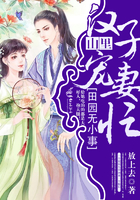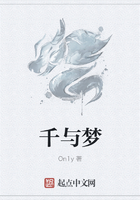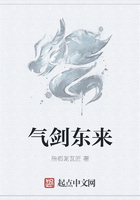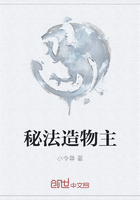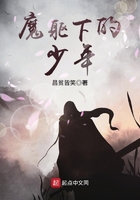SALONS OF THE EIGHTEENTH CENTURY
Characteristics of the Eighteenth Century - Its Epicurean Philosophy - Anecdote of Mme. du Deffand--the Salon an Engine of Political Power--Great Influence of Women--Salons Defined Literary Dinners--Etiquette of the Salons--An Exotic on American Soil.
The traits which strike us most forcibly in the lives and characters of the women of the early salons, which colored their minds, ran through their literary pastimes, and gave a distinctive flavor to their conversation, are delicacy and sensibility. It was these qualities, added to a decided taste for pleasures of the intellect, and an innate social genius, that led them to revolt from the gross sensualism of the court, and form, upon a new basis, a society that has given another complexion to the last two centuries. The natural result was, at first, a reign of sentiment that was often over-strained, but which represented on the whole a reaction of morality and refinement. The wits and beauties of the Salon Bleu may have committed a thousand follies, but their chivalrous codes of honor and of manners, their fastidious tastes, even their prudish affectations, were open though sometimes rather bizarre tributes to the virtues that lie at the very foundation of a well-ordered society. They had exalted ideas of the dignity of womanhood, of purity, of loyalty, of devotion. The heroines of Mlle. de Scudery, with their endless discourses upon the metaphysics of love, were no doubt tiresome sometimes to the blase courtiers, as well as to the critics; but they had their originals in living women who reversed the common traditions of a Gabrielle and a Marion Delorme, who combined with the intellectual brilliancy and fine courtesy of the Greek Aspasia the moral graces that give so poetic a fascination to the Christian and medieval types. Mme. de la Fayette painted with rare delicacy the old struggle between passion and duty, but character triumphs over passion, and duty is the final victor. In spite of the low standards of the age, the ideal woman of society, as of literature, was noble, tender, modest, pure, and loyal.
But the eighteenth century brings new types to the surface. The precieuses, with their sentimental theories and naive reserves, have had their day. It is no longer the world of Mme. de Rambouillet that confronts us with its chivalrous models, its refined platonism, and its flavor of literature, but rather that of the epicurean Ninon, brilliant, versatile, free, lax, skeptical, full of intrigue and wit, but without moral sense of spiritual aspiration. Literary portraits and ethical maxims have given place to a spicy mixture of scandal and philosophy, humanitarian speculations and equivocal bons mots. It is piquant and amusing, this light play of intellect, seasoned with clever and sparkling wit, but the note of delicacy and sensibility is quite gone. Society has divested itself of many crudities and affectations perhaps, but it has grown as artificial and self- conscious as its rouged and befeathered leaders.
The woman who presided over these centers of fashion and intelligence represent to us the genius of social sovereignty.
We fall under the glamour of the luminous but factitious atmosphere that surrounded them. We are dazzled by the subtlety and clearness of their intellect, the brilliancy of their wit.
Their faults are veiled by the smoke of the incense we burn before them, or lost in the dim perspective. It is fortunate, perhaps, for many of our illusions, that the golden age, which is always receding, is seen at such long range that only the softly colored outlines are visible. Men and women are transfigured in the rosy light that rests on historic heights as on far-off mountain tops. But if we bring them into closer view, and turn on the pitiless light of truth, the aureole vanishes, a thousand hidden defects are exposed, and our idol stands out hard and bare, too often divested of its divinity and its charm.
To do justice to these women, we must take the point of view of an age that was corrupt to the core. It is needless to discuss here the merits of the stormy, disenchanting eighteenth century, which was the mother of our own, and upon which the world is likely to remain hopelessly divided. But whatever we may think of its final outcome, it can hardly be denied that this period, which in France was so powerful in ideas, so active in thought, so teeming with intelligence, so rich in philosophy, was poor in faith, bankrupt in morals, without religion, without poetry, and without imagination. The divine ideals of virtue and renunciation were drowned in a sea of selfishness and materialism. The austere devotion of Pascal was out of fashion.
The spiritual teachings of Bossuet and Fenelon represented the out-worn creeds of an age that was dead. It was Voltaire who gave the tone, and even Voltaire was not radical enough for many of these iconoclasts. "He is a bigot and a deist," exclaimed a feminine disciple of d'Holbach's atheism. The gay, witty, pleasure-loving abbe, who derided piety, defied morality, was the pet of the salon, and figured in the worst scandals, was a fair representative of the fashionable clergy who had no attribute of priesthood but the name, and clearly justified the sneers of the philosophers. Tradition had given place to private judgment and in its first reaction private judgment knew no law but its own caprices. The watchword of intellectual freedom was made to cover universal license, and clever sophists constructed theories to justify the mad carnival of vice and frivolity. "As soon as one does a bad action, one never fails to make a bad maxim," said the clever Marquise de Crequi. "As soon as a school boy has his love affairs, he wishes no more to say his prayers; and when a woman wrongs her husband, she tries to believe no more in God."









